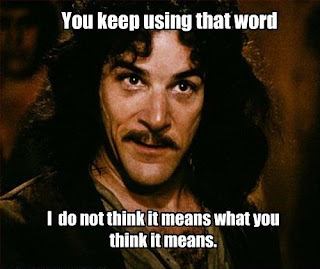It's 2022, year of the tiger, it's—well. It's that time I've earmarked for stepping back into the publishing game. Which means...it's time to make a spreadsheet!
When I started writing, my goal was traditional publishing due to time constraints from the day job. Then my chronic disease showed up and I traded in the lab career for my health and continued to pursue traditional publishing due to health constraints. But now that things are settling down, and I’m easing myself back into a writing routine, things are different.
I read a lot last year and for once I paid attention to who published the books AND how had I found out about the book.
68% of my reading list was published by the Big 5 (Penguin/Random House, Hachette, Harper Collins, Simon and Schuster, and Macmillan). Mostly via their imprints which produce certain genres, like Orbit who is a Sci-fi Fantasy imprint that’s owned by Hachette. I read 9 books from Orbit. 32% of last years’ reads were from small presses or self-published.
Spreadsheets are fun! But what I found even more interesting was how I found these books.
- Middle Grade Book (I read to my kids at night—audiobook style): 6
- Found Following the Author: 11
- Part of a Series: 22
- Goodreads: 26
- Library (either on the shelf or from their newsletter): 32
- Instagram: 35
Along with reading a lot I paid attention to various authors marketing strategies and what readers responded with the most enthusiasm. Because everything boils down to what Charissa posted about: know thy readers. If you can find the readers, your book will be seen.
Armed with spreadsheet info I now come to a fork in the road…one of life’s decisions. Which way do I go? Traditional publishing or Non-trad? It’s like playing the board-game Life and having to decide to go to college or get a job! To add to the conundrum, I write science fiction and fantasy. Do I go the same route with both works?
Things look different now, both in my capabilities and the publishing landscape. A debut author at one of the Big 5 isn’t as likely to get the marketing dollars, so I need to determine what they do bring to the table and is it worth the gamble that my work would earn enough to be considered a successful ROI in their books. A debut with a smaller press would bring different expectations, both with what they provide and what they consider a success. And again, it all comes down to where are the readers.
It’s time to weigh the pros and cons of trad publishing against non-trad. I need to determine what I want to control, how much I can handle, and what I want someone else to tackle. And it might end up being different paths for sci-fi and fantasy.
Are any of you writers debating which path to take with your work? Are any of you writers out there happy with the road you did travel?











